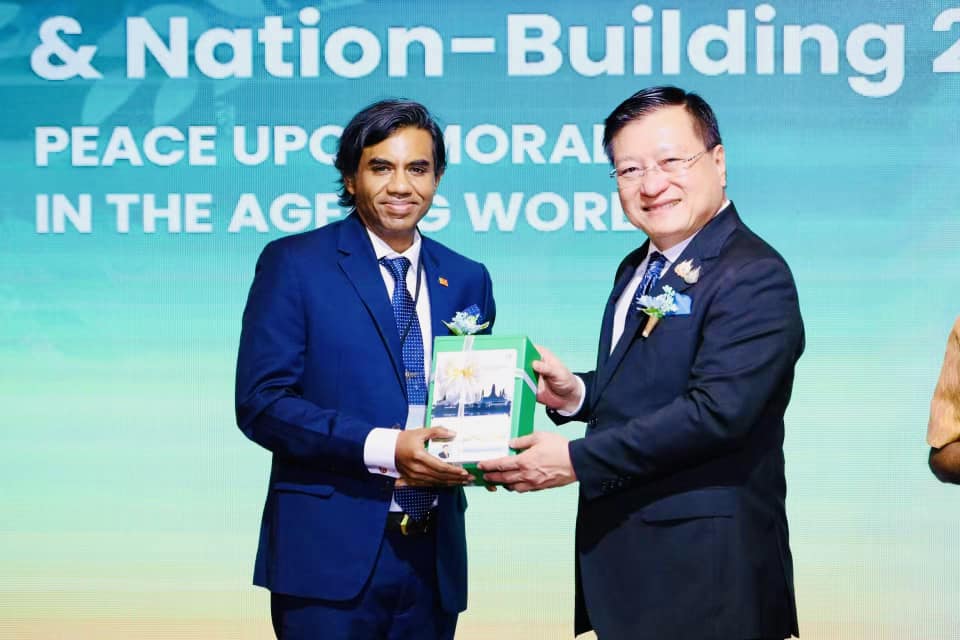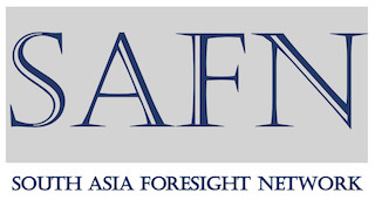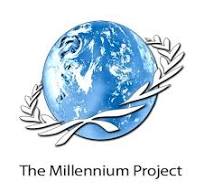Sri Lankan Scholar Shares Lessons on Corruption and Intergenerational Conflict at Thailand Conference
Sri Lanka’s generational divide—shaped by war, political disillusionment, and institutional decay—requires more than symbolic reconciliation. It demands structural transformation across political, educational, and cultural systems, Abeyagoonasekera emphasized. “This is not just a Sri Lankan issue—countries across South and Southeast Asia, including Thailand, are facing similar challenges.”
NEWS
SAFN
7/2/2025


Pic: Professor Kriengsak Chareonwongsak, Chairman of NBII with Prof. Asanga Abeyagoonasekera Executive Director SAFN Washington DC.
FOR IMMEDIATE RELEASE
Bangkok, Thailand – July 2nd, 2025 — At a time when nations across the globe grapple with deepening generational divides and public demands for transparency, Sri Lanka’s recent experience offers a powerful case study. Prof. Asanga Abeyagoonasekera (served as Visiting Professor), who is presently the Executive Director of the South Asia Foresight Network (SAFN) at the Millennium Project in Washington, D.C., delivered a presentation at the International Conference on Peace upon Morality, Development and Nation-Building (ICPDN) of the Nation Building International Institute (NBII) in Thailand on 27th June 2025. His paper, “Harmony or Discord: A Sri Lankan Perspective on Intergenerational Tensions,” will be published by NBII as part of its regional research initiatives.
Drawing on a deeply personal and professional journey—having lived through Sri Lanka’s civil war and losing his father to an LTTE assassination at the age of 16— Prof. Abeyagoonasekera outlined the roots of intergenerational friction in Sri Lanka. He shared his experience leading post-war national reconciliation efforts through the National Reconciliation Conference Series at the Lakshman Kadirgamar Institute from 2011 to 2015. His address highlighted the transformative role of youth in democratic renewal, particularly the 2022 Aragalaya movement, a peaceful uprising that demanded systemic change, justice for the corrupt, and a future rooted in dignity.
“Today, those demands are being translated into real policy outcomes,” said Abeyagoonasekera. “President Anura Kumara Dissanayake, elected in the wake of the youth-led uprising, is delivering on that promise. His administration’s reforms—guided by the IMF’s Governance Diagnostic Report—have led to the establishment of independent anti-corruption institutions, strengthened mechanisms for reconciliation, and a reinvigorated commitment to democratic governance.” Prof. Abeyagoonasekera, who served as a Senior Technical Advisor to the IMF for Sri Lanka’s 2023 Governance Diagnostic Report, remarked, “It is deeply encouraging to see this administration now meeting the very benchmarks we once proposed. This progress marks not only a turning point for Sri Lanka but a global example of how post-crisis reform and intergenerational equity can be achieved.”
The Sri Lankan government’s recent efforts have also received praise from the international community. During the visit of UN High Commissioner for Human Rights Volker Türk, Prime Minister Harini Amarasuriya reaffirmed Sri Lanka’s commitment to reconciliation, referencing the strengthened roles of the Office for Missing Persons (OMP), Office for Reparations (OR), and the Office for National Unity and Reconciliation (ONUR). Officials from the UN Office of the High Commissioner for Human Rights (OHCHR) have acknowledged the progress as a promising step forward. This would create hope for the youth on generational accountability.
“Sri Lanka’s generational divide—shaped by war, political disillusionment, and institutional decay—requires more than symbolic reconciliation. It demands structural transformation across political, educational, and cultural systems,” Abeyagoonasekera emphasized. “This is not just a Sri Lankan issue—countries across South and Southeast Asia, including Thailand, are facing similar challenges.”
The conference was organized under the visionary leadership of Prof. Kriengsak Chareonwongsak, Chairman of NBII. Abeyagoonasekera expressed deep appreciation for Prof. Kriengsak’s efforts, noting, “This forum is a testament to his dedication to inclusive policymaking and to preparing societies for generational transition. NBII’s work is not only timely, it is essential.”
In recognition of his scholarly and policy contributions, Prof. Abeyagoonasekera was appointed Non-Resident Senior Fellow at NBII, where he will advise on public policy and geopolitics for Thailand and the wider region.
“There are important lessons to share between Sri Lanka and nations like Thailand,” he added. “We must move beyond national borders to confront the common challenges of corruption, generational inequality, and democratic transition. This is a shared South and Southeast Asian story.”
As Regional Director of the South Asia Foresight Network (SAFN) under the Millennium Project in Washington, D.C., Prof. Abeyagoonasekera’s research contributes to broader geopolitical foresight—building vital bridges between the United States, South Asia, and Southeast Asia to advance strategic cooperation, regional resilience, democratic reform, and inclusive governance.
Media Contact
SAFN – Washington, D.C. - https://southasiaforesight.net southasiafutures@gmail.com


